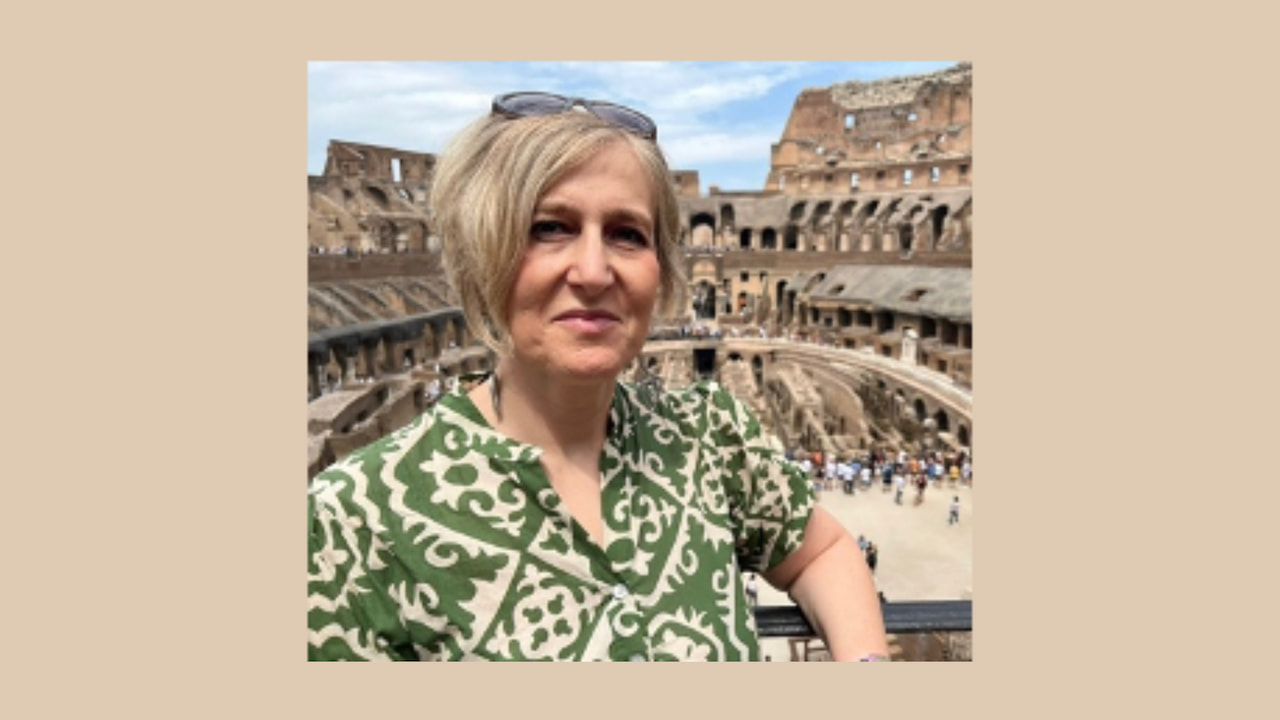Faculty Profile: A Conversation With Marzia Caporale

Marzia Caporale, Ph.D., Director of Women's & Gender Studies, is a faculty member in the World Languages and Cultures Department. Dr. Caporale, who joined the University in 2007, shares information about her background, and experience working as a professor at the University. This semester, her courses include intermediate Italian, intermediate French, and a hybrid class, Lit 330, Resistance and Resilience: Francophone Women Authors.
Which languages do you speak?
"I speak French, Italian, English, and some Spanish."
What inspired your early interest with languages?
"In my elementary school, we started English in third grade.... I became fascinated knowing there was another language out there. In high school, on a study abroad program, I went to England, where we stayed with English families and explored the culture of the city. I did that for a couple of years. As I got older, I sought out more opportunities. During the summer there I worked as a nanny. I also traveled to France and did home stays with families."
What drew your interest in learning and studying other languages?
"I’ve always been interested in languages, mostly because I’ve wanted to travel. I wanted to talk to others in other countries. I started with English, then French, and continued learning Spanish at the University."
What interested you to teach languages?
"I was inspired by the people who taught me. I was fortunate to have amazing language teachers from early on... elementary school, middle school, and high school. At the university, my French professor was student centered and I loved his style."
Where did you study before you came to The University of Scranton?
"At the University of Florence, I earned my first degree, equivalent to a master’s. I then attended University of Nebraska - Lincoln for my Ph.D."
Which aspects of teaching at The University of Scranton and working in the World Languages Department do you most enjoy?
"What I love is getting students inspired to travel and to learn about the culture. Language serves as a gateway to the culture. This is not just about learning abstract concepts, it’s about learning something that is alive and that can be practiced.
"I love having colleagues from different parts of the world. It’s a constant learning experience since you are exposed to new cultures and new people. It’s always a dynamic process, never static."
What is your favorite course to teach, and why?
"Literature of Global Minorities is a course that the department revised recently. It's for the General Education curriculum, so it has a broad target. I love it because it allows me to use texts from different languages and cultures. It allows me to blend in my expertise into one course. The students have loved the course."
Please discuss your recent research projects.
"Dr. (Virginia A.) Picchietti, the other Italian professor, and I are in the process of translating the book "Born for You," from Italian to English. It tells the story of an Italian man, who as a single parent, adopted a child with a disability. It was the first case of single-parent adoption of a child, because laws in Italy don’t usually allow that.
"I am enjoying the translation of "Born for You," because it’s challenging. Even though I’ve taught courses in translation, I’ve never professionally translated. This book is very important because it talks about acceptance, civil rights and discrimination. It has so many aspects that we want people to learn about. It’s not just translating a novel, it’s a book that can spark a debate about acceptance and rights. Essentially, it’s a project with a purpose.
"I’m also working on a book project titled "Gender in French Banlieue Cinema," which is a collection of articles about the film genre relating to French suburbs."






